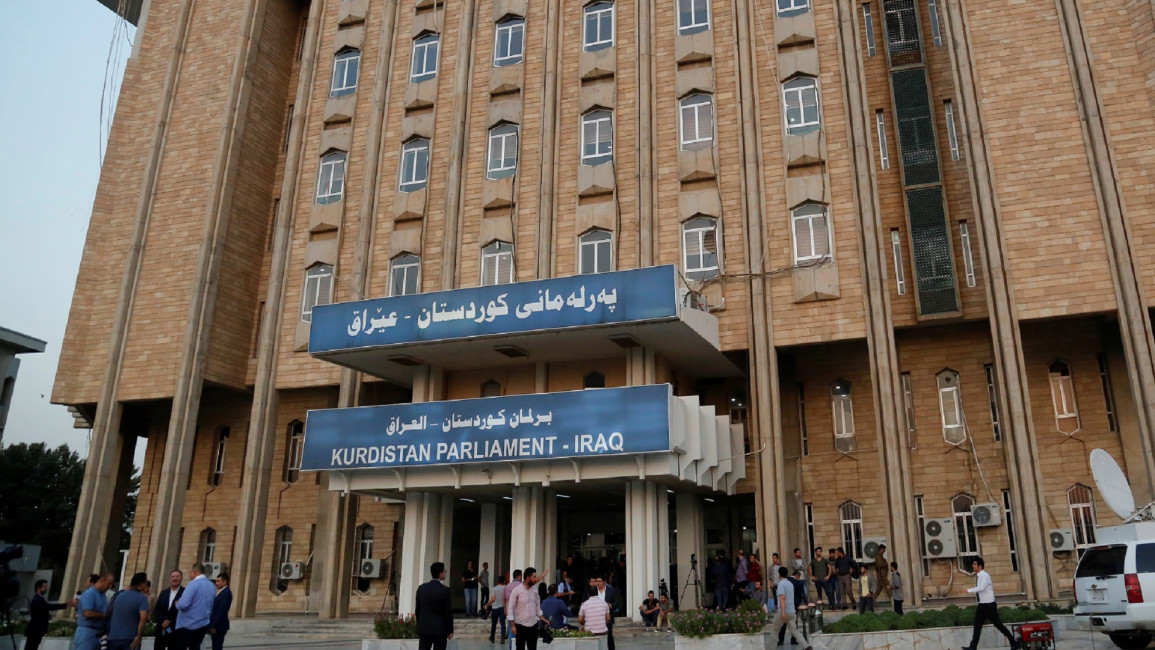Erbil denies handing Syria Kurd official's niece to Turkey
Iraqi Kurdish authorities on Monday denied handing over to Turkey the niece of an influential Syrian Kurdish official wanted by Ankara, as claimed by her family.
The interior ministry in northern Iraq's semi-autonomous Kurdish region dismissed the accusation from the family of Dalia Mahmoud Muslim, echoing an account given by official Turkish news agency Anadolu.
Citing security sources, Anadolu reported Saturday that the 21-year-old had "handed herself in" to Turkish security forces on July 15 in a southern province of Turkey.
Dalia Mahmoud Muslim is the niece of Saleh Muslim, longtime co-chair of the Democratic Union Party (PYD), political arm of the main Syrian Kurdish militia, the People's Protection Units (YPG).
Twitter Post
|
The YPG is viewed as a "terrorist" group by Turkey and an offshoot of its outlawed Kurdistan Workers' Party (PKK).
Iraqi Kurdish authorities said the young woman "had left the Women's Protection Units (the YPG's female equivalent) and started a relationship with a PKK fighter known as Toul Hadan, living in Bitlis", Turkey.
"Both of them have decided to leave the PKK," the interior ministry said in a statement.
Dalia Mahmoud Muslim travelled "clandestinely" to Turkey to hand herself over to Turkish authorities, it said.
On Sunday, her father, Mahmoud Muslim, said Iraqi Kurdish authorities bore "responsibility for her kidnapping or for handing her over to Turkish intelligence", adding that any comments attributed to her were "false" and obtained "under pressure".
Writing on Facebook, he said his daughter had travelled to neighbouring Iraq's Kurdish region six months ago for medical treatment and had been preparing to return to Syria when she was "handed over to the Turkish authorities".
Saleh Muslim was himself briefly detained in Prague in 2018 and Turkey demanded he be extradited, on the basis of a Turkish arrest warrant issued two years earlier over an attack in Ankara that killed 29 people in February 2016.
He denied any link to the attack and was released.
The Kurds established a semi-autonomous administration -- viewed with hostility by Ankara -- in the vast stretches of northeastern Syria that border Turkey during the ongoing civil war.
Iraqi Kurdish authorities, dominated by the Kurdistan Democratic Party (KDP), see the PKK as rivals and been unable to uproot them from their northern Iraqi bases.
The PKK, which has waged a three-decade insurgency against the Turkish state, has long used the rugged terrain of northern Iraq as a rear base to attack Turkey, which in turn has set up military positions inside Iraqi territory.
Follow us on Facebook, Twitter and Instagram to stay connected


![President Pezeshkian has denounced Israel's attacks on Lebanon [Getty]](/sites/default/files/styles/image_684x385/public/2173482924.jpeg?h=a5f2f23a&itok=q3evVtko)



 Follow the Middle East's top stories in English at The New Arab on Google News
Follow the Middle East's top stories in English at The New Arab on Google News


